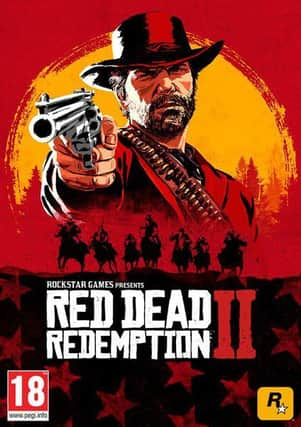Martyn McLaughlin: Red Dead Redemption is art no-one should suffer for


Why is it we seldom question the working practices underpinning great works of art? The history of popular music is littered with examples of era-defining albums which did not emerge fully formed, but required blood, sweat and tears to coalesce into something that would stand the test of time. Their genesis may have coincided with nervous breakdowns, physical conflict, and abusive behaviour, collateral traumas which are laughed off and bolster the auteurs’ self-penned mythologies.
The same is true in cinema, where giants such as Stanley Kubrick were excused for conduct bordering on the tyrannical. The Shining, for example, is not one of Kubrick’s best films, yet remains memorable chiefly for Shelley Duvall’s frantic performance. Would it have been the same film had he not subjected her to debasing treatment? Perhaps not. Then again, a more pertinent question is whether such behaviour informed the creative process.
Advertisement
Hide AdThe rapid evolution of the video game industry means its defining titles boast fully formed worlds and immersive narratives unthinkable a generation ago. Games are a fixture in our cultural life. With that comes some long overdue soul searching about the value – and cost – of these creations.
If you’re not a gamer, you probably missed the fanfare surrounding last week’s release of Red Dead Redemption 2. A dizzyingly ambitious title set in the post-Reconstruction era US south, it is the first original title released by Rockstar Games – the creators of the Grand Theft Auto series – in five years.
Its studios around the world, including Rockstar North, based in The Scotsman’s old offices in Edinburgh’s Holyrood Road, spent seven-and-a-half years conceiving and finessing a title that stands to win a host of awards and generate extraordinary sums of money.
Yet the launch coincided with debate of an issue known as ‘crunch’, which refers to a cycle in a game’s development where staff work for weeks of intense and often unpaid overtime in order to implement changes and meet the scheduled release date.
In the case of Red Dead Redemption 2, the controversy was sparked by an interview with Dan Houser, Rockstar’s co-founder, in which he said “we were working 100-hour weeks”. The admission lit up the internet like a Roman candle, and although Houser later clarified his comments – stating that the extended hours applied only to senior writers over the course of three weeks – the controversy gathered pace.
Dozens of current or former Rockstar employees confided in the gaming site, Kotaku, describing a ‘crunch’ culture not simply confined to the latter stages of a game’s development, but spread over months and years. Some attested to working mandatory overtime of up to 80 hours a week, or being asked by their manager why they weren’t working more than 40 or 45 hours over the same period.
Advertisement
Hide AdOne Rockstar North employee bemoaned having been on “a steady death march of mostly mandated 50 to 60-hour weeks for quite honestly years”, while another former UK-based staffer said the stress of constant overtime over the best part of the last decade had taken a grave toll on their health. “They were – are – one of the best companies going,” they added. “But the thing is, for the people who work for them, it’s not just a job, it’s an absolute way of life.”
Such conflicting assessments are not uncommon. Rockstar’s games are rightly lauded and the opportunity to play a small part in their creation is an honour. These staff can – and should – be proud, and in return, they enjoy generous bonus schemes and holiday entitlement. None of that, however, justifies working 80 hours a week.
Advertisement
Hide AdFor all that so-called ‘triple-A’ games stand out as artistic wonders, reaching that point is remarkably laborious and taxing. The dreaded process of ‘quality assurance’ (repeatedly playing through the emerging game to check for errors and discrepancies) is particularly thankless.
Red Dead Redemption 2 includes 300,000 animations and 500,000 lines of dialogue, voiced by a cast of actors more than 1,200 strong. The job of meshing these disparate strands into a polished whole, where component parts go unseen, fell to an army of coders, designers, animators, and artists. Around 3,000 people are listed in the credits.
Only a handful will have determined the overarching vision of a game set in the rambling wilderness of late 19th century America. That does not mean their colleagues should be denied working hours befitting the 21st. Rockstar’s opus is indisputably a work of art. It is also a mass-market consumer product created by a global workforce. These two facts are not mutually exclusive.
The ethics of playing games is a question rarely posed, but unless developers and publishers take steps to stamp out an invidious working culture, it will become part of the conversation.
Rob Nelson, the co-studio head of Rockstar North, has said management are looking to improve “the way we approach development at this scale”. That is encouraging, but scepticism must meet the promises of an industry predisposed to workaholism.
Rockstar North enjoyed a £11.9m corporation tax break last year through the UK Government’s video games tax relief scheme, which assesses the cultural merit of titles. Might it be a prudent idea to consider other, more pressing matters?